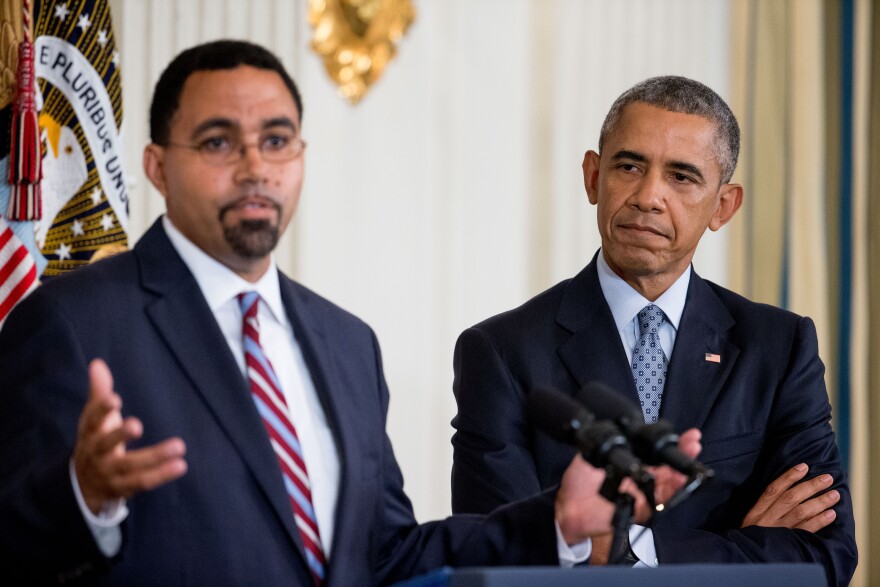President Obama has increased college aid by over $50 billion since coming into office. And he's trying to do more.
Acting Education Secretary John King announced two new proposals today that would expand the Pell Grant program, the biggest pot of federal money for students with financial need:
Both of these ideas are examples of a current trend in higher education: financial aid used as a carrot to encourage students to complete their degrees. The 2013 graduation rate for first-time, full-time students seeking a bachelor's degree was just 59 percent after six years. And the three-year graduation rates for associate's degrees was a dismal 29 percent. That means a lot of taxpayer-funded assistance goes to students who simply don't finish their studies.
Will offering students a few hundred dollars, or even a few thousand, be enough to get them taking more courses and earning their degrees? So far, the evidence supporting this approach is mixed.
It's also worth noting that today's proposals are just that: budget proposals. And that means Congress will need to weigh in before anything changes.
Copyright 2021 NPR. To see more, visit https://www.npr.org. 9(MDAxODg3MTg0MDEyMTg2NTY3OTI5YTI3ZA004))




